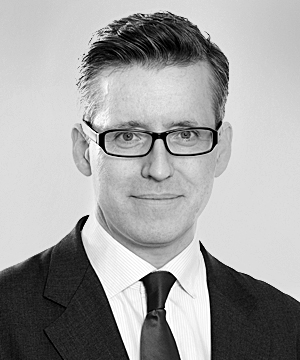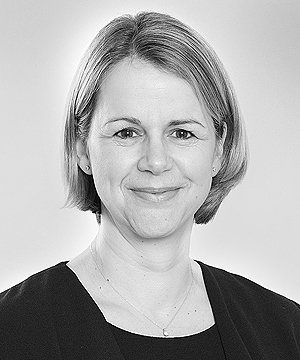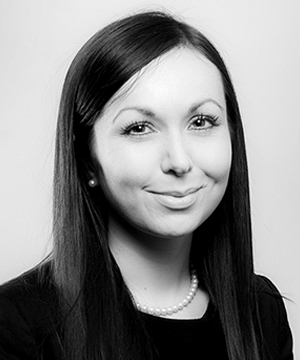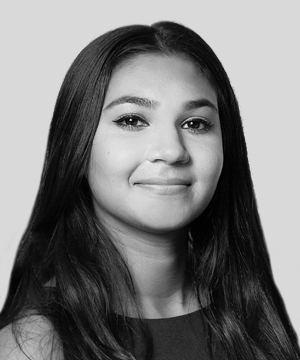Diversity, equity & inclusion ambassadors
Learn more about our diversity, equity and inclusion activities from our ambassadors working across the firm.

Learn more about our diversity, equity and inclusion activities from our ambassadors working across the firm.

Diversity, equity and inclusion (DE&I) ambassadors are members of the firm who are committed to fostering, embedding, and promoting an inclusive culture. They have lived experience in the area in which they are offering support and, as such, can provide tailored guidance and a safe space for individuals to share their thoughts and experiences. Our DE&I ambassadors would love to answer any questions you may have that relate to their specific expertise, so please do get in touch.

Our life is a journey and in order to know where you are going, you need to know where you have come from. This begs the most profound question any of us can ask: Who am I? The answer must go beyond the superficiality of where I live, how I speak, where I was educated or what I do.
For me the answer is “I am a Jew”. My faith defines my past, present and future and is a connecting link of generations. Judaism defines how I think, how I feel and how I act. It defines my moral compass and how I choose to lead my life, both at home and in the workplace.
Sometimes, following a faith can make one feel different, especially in the workplace, but I have long since believed that it’s not Jews who are different but Judaism - and that must be so for other minorities as well. As a non-missionary faith, Judaism recognises and respects all other faiths and beliefs, I am in a good place to support and mentor all minorities in the workplace. I am not a Jew because of antisemitism. What happens to me does not and should not define me. Nevertheless, my faith has made me only too aware that minority discrimination is still widespread - and sometimes mainstream - in our society whether that be overt racism or more subtle challenges such as affinity bias.
We all have a responsibility to tackle that wherever and whenever that arises and to support others who are affected.
Lived experience: State school educated | Culture and religion | Non-Russell group

Although white, male and born in Britain - and acknowledging the privilege those factors bestowed on me - I have encountered a few barriers on my path to joining the legal profession. I am the youngest of seven children in a stereotypically large, working class Irish Catholic family and my parents were first generation economic migrants to England.
My siblings and I were the first generation to go to university and I attended Middlesex University. A key priority for me in selecting a university was its proximity to home, as I was also a teenage father and working as a postman to earn a living, while attending lectures and trying to do as many vital extra-curricular activities as possible and to gain work experience.
Given my non-typical background for entry to a city law firm and conscious of the prejudices that existed and continue to exist, I feel I can relate well to people from "non-traditional" demographics who are seeking to establish a successful legal career. I am proof that, with hard work and encouragement, it is possible and I would like to be an inspiration and lend support to all in need of both.
Lived experience: State school educated | Low income family | First generation to go to university | Race and ethnicity | Non-Russell group | Marriage and civil partnership | Parents | Carer

As a partner in the traditionally male-dominated sector of real estate, it is very important to me that women coming into law and progressing their career at all levels are supported and able to seek guidance on any issue where they may feel excluded or treated differently because of their gender.
I have experienced and can relate to many of the circumstances that women can find themselves in when working and networking in areas dominated by men and the affect this can have on an individual’s confidence.
I am also a working mum and can fully sympathise with the additional challenges that trying to meet client demands and raise a family brings but I also think being a parent develops new skills which can be equally applied - and should be valued - in the workplace. If you’ve ever negotiated with a toddler, I fully believe you can handle any type of negotiation thrown at you in the office!
Lived experience: State school educated | Gender | Parent

Diversity in the workplace is not only important for ethical reasons but is also valuable for businesses. A wide range of perspectives help to create innovative workplace environments which foster productivity and profitability. That said, as a first-generation university attendee from a low-income family, I am all too aware of the numerous barriers encountered by students from disadvantaged backgrounds when trying to enter the legal profession.
Issues such as a lack of access to work experience or support from schools and families, as well as the implicit bias towards regional accents and class, can put people from low-income families at a distinct disadvantage.
I recall that, when applying for training contracts, my CV certainly appeared less impressive than those of my university peers who had contacts in the legal profession and had, through them, obtained numerous work placements. I was also aware that, having attended a comprehensive school in Liverpool, I perhaps lacked the polish of those who had benefited from a private education.
Indeed, studies have shown that law firms tend to favour recruiting trainees who have been privately educated over those who attended state schools. Although there has been a slight shift in this trend in recent years, the legal profession lags behind most other sectors when it comes to socioeconomic diversity. We must improve access to the profession in order to attract those with the potential to become the best lawyers regardless of their background.
Lived experience: State school educated | Low income family | First generation to go to university | Accents

Diversity keeps life interesting and allows us to embrace differences in others, appreciating that we are all unique. I proudly identify as a multiracial woman and, being a mix of French and South American descent, I frequently get asked about where I come from. I understand the struggle with questions of racial identity and where to fit in, having often felt external pressures to “pick a side”.
Promoting diversity is important to me because it brings a wide variety of people with different cultures and perspectives together to solve problems and discuss ideas. Diversity increases creativity and innovation. People who come from different backgrounds can draw upon their unique experiences and offer a wide range of knowledge, often stimulating a new perspective on issues.
The legal profession still struggles with diversity and equality in the workplace today but I firmly believe diversity is particularly important in the legal sphere to ensure that the legal profession properly reflects the population it aims to serve.
Although our own experiences are unique, I would like to help people in any way I can by listening to the views of others, raising awareness and providing support and guidance where needed.
Lived experience: State school educated | Race and ethnicity | Gender | Culture and religion | Non-Russell group

I believe that diversity and inclusivity is essential in creating a happy and positive workplace. Since joining Penningtons Manches Cooper in September 2020, I have been impressed by the firm’s emphasis on diversity, equity and inclusion. However, there is always room for improvement and I am keen to assist in any way that I can. Having attended a large comprehensive school in South Wales, I understand that it can often be difficult to grasp the same career opportunities as perhaps those from other educational backgrounds.
When applying for my training contract and other legal jobs, I found talking to individuals in the legal sector and seeking their advice on certain aspects of the process invaluable and I would really welcome the chance to be able to help anyone in that position.
Lived experience: State school educated | Gender

Throughout my legal studies, I worked in retail over the summer and Christmas holidays to save up money to support myself during term time. When I graduated, I had very little legal experience under my belt which, at the time, seemed to place me at a significant disadvantage compared to my peers. I was the first member of my family to go to university and am the only lawyer. I didn’t have a network of contacts to rely on and felt somewhat daunted by the prospect of trying to get a foot in the door of the legal profession. Without support, guidance and encouragement from friends, family and peers along the way, I would have struggled to break into the profession and it is for this reason that I want to help others on their journey.
As a member of the LGBTQIA+ community (I’m a gay man), diversity and visibility within the legal profession are particularly important to me. Being able to come to work as your authentic self and having pride in your own identity can be a rather long and difficult road to navigate for many people. The profession as a whole needs to attract talent from all minorities and underrepresented groups. We have a collective responsibility (both as members of the LGBTQIA+ community and allies) to foster a safe environment for all LGBTQIA+ people. I hope my role as an ambassador will help promote visibility within the profession and better the experience of others.Lived experience: State school educated | First generation to go to university | LGBTQIA+ / sexual orientation

I am a young Asian woman with a state school background and I did not have legal connections who could provide me with the advice, support and opportunities that I knew others had access to.
Pursuing a career in law is often challenging but ultimately very rewarding. Talented and hard-working individuals come from a wide range of backgrounds and it is vital that opportunities to enter and progress within the legal profession are given to such individuals.
Facilitating diversity within the workplace also nurtures an inclusive and understanding environment where different ideas and perspectives can be shared and discussed. All of this contributes towards success and enjoyment at work.
I am thankful for the help that I was fortunate enough to receive and I want to provide advice and support to others in the hope that this will help them thrive in a legal career.
Lived experience: State school educated | Gender | Race and ethnicity | Mental health